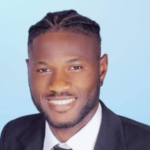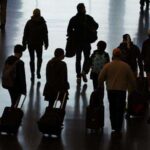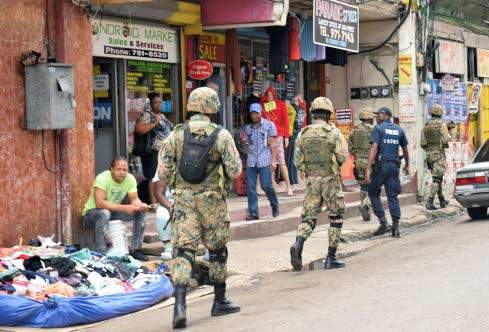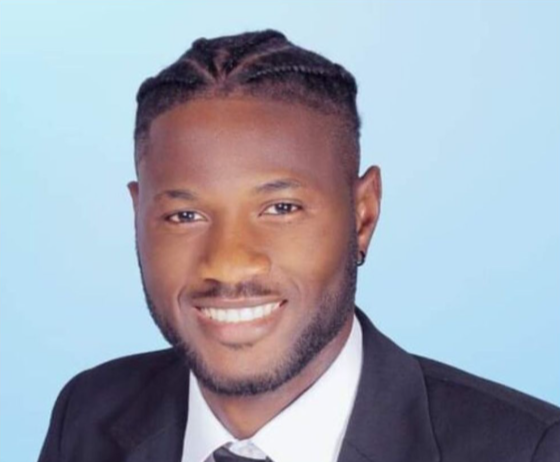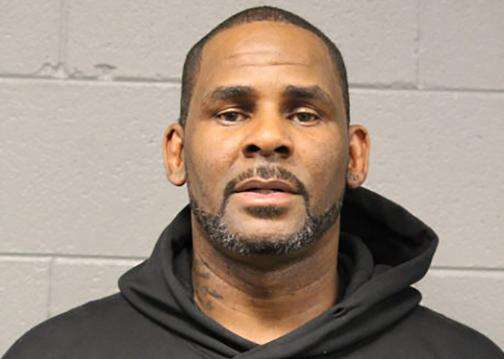Prime Minister Andrew Holness yesterday disclosed that 20 of the 75 individuals still detained under the state of public emergency (SOE) in St James are some of the most dangerous criminals in the country, and said that the Opposition’s vote against extending the measure will result in them being released back into their communities.
“If you let them out, immediately the crime is going to jump. If you let them out and they can go back into the communities as they like, they’re going to go out and kill witnesses, they’re going to go out and take people’s lives, they’re going to go back to their mayhem,” Holness told the Jamaica Observer.
At the same time, Holness rubbished the Opposition’s argument that most of what is now being done to control crime in the areas under the SOE can still be done without the emergency measure.
The Opposition, after supporting extensions of the SOE over this year, voted against a further extension in Parliament last Tuesday night, saying that detainees were being subjected to human rights abuses and that the measure was no longer necessary, given the reduction in crimes, particularly murder.
Opposition Leader Dr Peter Phillips had argued that while it may be arguable that the conditions warranting the declaration of an SOE existed at the time it was declared in January this year, they clearly do not exist now.
Phillips, president of the People’s National Party (PNP), reiterated the Opposition’s position at a news conference on Thursday.
“There’s nothing that we have done [in voting] that can stop the measures. The only thing that could not be done is the long-term detention of citizens, without giving them access to the courts. Everything else can continue,” he said at the party’s St Andrew headquarters.
But yesterday, Holness said that the SOE creates a legal space in which extra powers are given to the police, the military, and in some instances the fire brigade.
He also said that a state of emergency doesn’t suspend anybody’s rights.
“What it does [is] it gives a different scheme under which those rights are exercised or protected. So it gives the police the ability to detain; they have to have reason to detain you, they can’t just go anywhere and detain anybody. They can hold you for a longer period of time, but they can’t hold you forever, and it is not that there is no process of review,” the prime minister said.
“So, in addition to giving the extra powers to authorised personnel, it creates what is called a competent authority, and that competent authority is the minister, the commissioner of police, the chief of defence staff, and it creates a tribunal to determine if people are being detained [justly] and the conditions under which they are detained and when they should be released. So there is a process. It is not a situation where it is a free-for-all. And what we have done is, using the state of public emergency, we go as far as possible to ensure that the persons who are authorised, and the competent authorities, act in accordance with the law, and that they work, first and foremost, to protect life and property and not to take life,” Holness said.
He noted that the extraordinary police powers given to the military under the SOE doubles the policing capabilities of the security forces, as it creates a space in which the military and the police can act jointly or separately.
Holness also pointed out that the establishment of the National Security Council allows for decisions to be made from a joint command.
“So, if you take away the state of emergency, the military no longer has the flexibility to operate, and the military will now act as an adjunct or auxiliary to the police,” he argued.
He also said that the ability in the first instance to detain is not just a power used to control criminals, it is also used to protect people.
“So we are able to take people into custody as well who need protection. We are able to take people into custody who we would normally have to build a case on to get them out of the community. So we are able to bring them into the custody of the police and immediately relieve the threat. So what that does is to create a space where people can provide the police with information. Because outside of a state of emergency what happens is that people kill witnesses,” he said. “If you take away the state of emergency, immediately you put those people back on the street.”
He recalled that when crime was spiralling in St James the country asked the Government to send more resources there.
“We mobilised resources. We sent the army down; we increased foot patrols, there were several operations, we increased the number of police and soldiers in the space, we went on raids… we went all out. We maintained the presence, no question. But what was the problem, why were we not getting the results, even in the face of increasing the resources?” he asked.
“So the argument to say, do what you were doing before and it will work is a rubbish argument. We did it. We were doing exactly that before. What Peter Phillips failed to recognise and the PNP fail to recognise is that the level of crime is over and above the capacity of normal law enforcement,” Holness said.
“The global average is six per 100,000. At the height of the situation in St James it was 182 per 100,000. Now we are 55 per 100,000, still way above what is the global average… and this where there is a dispute, whether or not the present crime situation is an emergency. We say it is, they say it isn’t,” the prime minister argued.
He said the move to bring the military into the space of operation with the augmented powers and the ability to detain and control movement, and control the night-time in particular, interrupts the decision-making cycle of the criminals and limits the opportunity for random crimes.
“You take away the state of emergency and you don’t have that impact,” Holness said.
“The other issue is that the criminals can’t tell when this is going to end, and that is particularly the case when there is public support and political support. What the PNP has done is to signal to the criminals that there is no political unity, and to me that is the most dangerous thing that crime is once again a political issue,” Holness charged.
He said he has been reaching out to people in the PNP, and members of the party have reached out to him, and he knows that internally the decision to withdraw support for the SOE “is not a fully backed position”.
He also chided the PNP for suggesting that if the crime rate starts climbing after the SOEs end next month the party should not be blamed.
“What they want is to take a decision but bear no consequence,” Holness said, adding that the party’s decision was flawed as it was made with a focus only on “the supposed abuse of rights of detainees”.
“There was no consideration of the rights of citizens who were affected. I don’t think they yet deeply understand how crime has affected the population that when it became clear that the PNP was voting against the state of emergency people called the radio stations crying because they have suffered,” Holness said.
He also scolded Opposition spokesman on national security Fitz Jackson who, in the parliamentary debate last Tuesday, said when he heard the public defender’s report about the condition in which people were being held under the SOE he went and visited an ex-detainee.
“Did he go and visit the lady in Granville or the man in Salt Spring who lost a family member?” Holness asked. “Did he hear their perspective as the people’s loyal Opposition? Did they truly grapple with and balance all the issues that had to be addressed?”
He said he did not believe that the PNP acted in the interest of the people of Jamaica.
“I do not believe that the PNP, as a political party, considered the full implications of its action or acted in the interest of the people of Jamaica. They acted for political opportunism and selfish reasons,” he said.
“For the first time in a long time, people in crime-torn communities were able to sleep in peace without gunshots shattering their sanity. They were able to sleep on their beds instead of under their beds. They could walk on the road in peace, they could feel comfortable that they could go about their business and not be harassed and that extortion was reduced, that order was returning to their communities. The instrument that delivered all of that, the PNP has pulled it away in another bad-minded move,” Holness added.
